Knowledge organisers for GCSE Computing
Always in the pursuit of doing better for the students I teach, two posts have made me reflect deeply on my practice this week.
1. Knowledge organisers by Joe Kirby.
In the post Joe describes how he specifies the subject knowledge required for a given topic in meticulous detail. This is useful for a few reasons:
– it clarifies for the teacher exactly what the students need to know and enables more precise planning.
– it serves as a good benchmark for students at the beginning of a topic. Seeing the required knowledge laid out in front of you on a side of A4 is extremely powerful and will enable students to highlight what they are already know.
– when it comes to revision, students have real clarity about the knowledge they need to know.
During my relatively short time as a teacher, when starting a new topic I may have shared a vague outline of what the topic will involve but never to the detail suggested in Joe’s post. I feel like a trick has been missed here, which is why I plan to experiment with knowledge organisers from this point forward.
2. Sequencing lessons in the run up to exams by Andy Tharby.
Andy’s post puts into practice Joe’s knowledge organiser for a GCSE English class. Andy also describes in depth his approach to a series of lessons leading up to an exam. Lessons follow a similar routine (although the stages of each lesson might involve different delivery styles / mediums):
1) Begin with a ‘memory platform‘ where they will be tested on key knowledge/quotes from the knowledge organisers using a wide range of quizzing methods. Students need to be fluent in this knowledge and to do this they will need to cover it repeatedly. They will be encouraged to elaborate on these points of knowledge, exploring their wider significance.
2) Revise and extend a key area. OMAM and AIC – the green lessons – will be taught side-by-side, whereas the poems will be revised in pairs.
3) Lessons will end with 15 minutes of deliberate writing practice where students will be expected to hone the finer parts of their analytical style by writing a paragraph at A/A* standard – this is a top set – based on the content of the lesson (modelling and scaffolding will feature here too).
When planning revision sessions (and in a broader sense planning a curriculum structure) it’s worth thinking about the following:
If learning happens when we think really hard about something and we remember what we think about, then engaging students in activities, practices and routines that encourage this is probably a sensible course to take.
GCSE Computing revision.
As a result of reading the aforementioned posts and adopting the collective thinking of Professor Coe and Daniel Willingham, I have developed a revision structure for a GCSE Computing class I teach. It follows this cycle:
1. Start with a memory platform, usually a multiple choice quiz (these are deliberately rigourous with any one of the three answers a potential correct answer, forcing students to study the different answers and think hard about theirs).
2. Knowledge organisers. I have only just started using these as prompted by Joe and Any’s blog posts earlier this week. But I intend to use them at the beginning of teaching a topic as well as revision. It’s a collection of documents that will be referred to throughout the entire course. in revision sessions the knowledge organiser is an opportunity to see an overview of the knowledge and pick out the things they can remember and the things that they need to revisit first.
3. Key subject specific vocabulary. Students are then given time to recall key terms from memory for a particular topic. This is followed up by the TLAC technique ‘Check or change’ where students check their definitions against correct definitions and make changes if needed.
4. Flash cards. Students are then given time to create a set of flash cards based upon the key subject specific vocabulary. Flash cards have previously been identified as a more effective revision technique. I’m working on the premise that if students are comfortable with the subject specific vocabulary then they should be able to at the very least attempt every question for that topic (obviously they need to understand the context of each question, that comes next). Feedback from students has been really positive as the motivation to use the flash cards appears to be higher than to write out copious notes.
5. Past paper questions. Finally students attempt past paper questions, using the subject specific vocabulary in different contexts. I have also experimented with working through long answer questions with students using the following routine:
- students attempt a question in exam conditions
- teacher works through the answer with the class using students answers to prompt discussion and supportive critique
- students attempt the same question again in exam conditions
- teacher works through answer again with the help of students to model an answer
- a similar question (that requires the same knowledge but uses a different context) is then used as a starter in the next lesson.
Impact.
It’s hard to evaluate how much of an impact the above strategy will have on exam performance but…
… from a teaching perspective, revision sessions certainly seem more focused with a greater clarity of what students need to know for each topic which lends itself to more precise deliberate practice.
… students have a much clearer picture of what they need to know and the work they are producing is of better quality and a greater depth. Students are more inquisitive and motivated to increase their knowledge.
… lessons have a greater sense of urgency to them.
RESOURCE: GCSE Computing knowledge organisers.
Computer systems [.PDF] [.PPTX]
Data representation [.PDF] [.PPTX]
Complete set of knowledge organisers in one file [.PDF] [.PPTX]
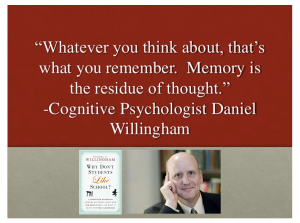

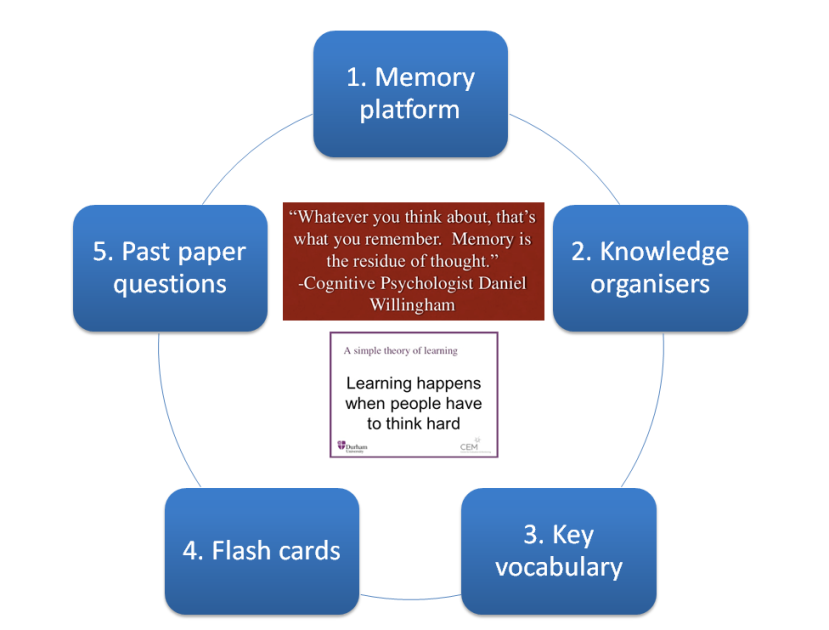
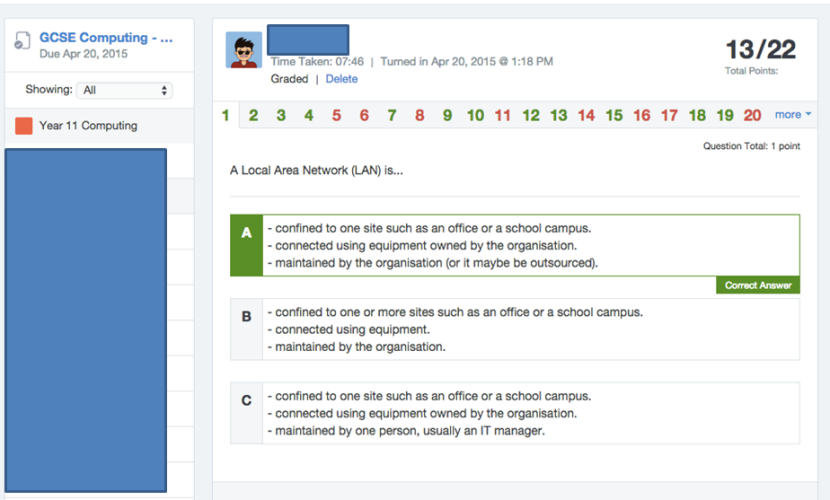
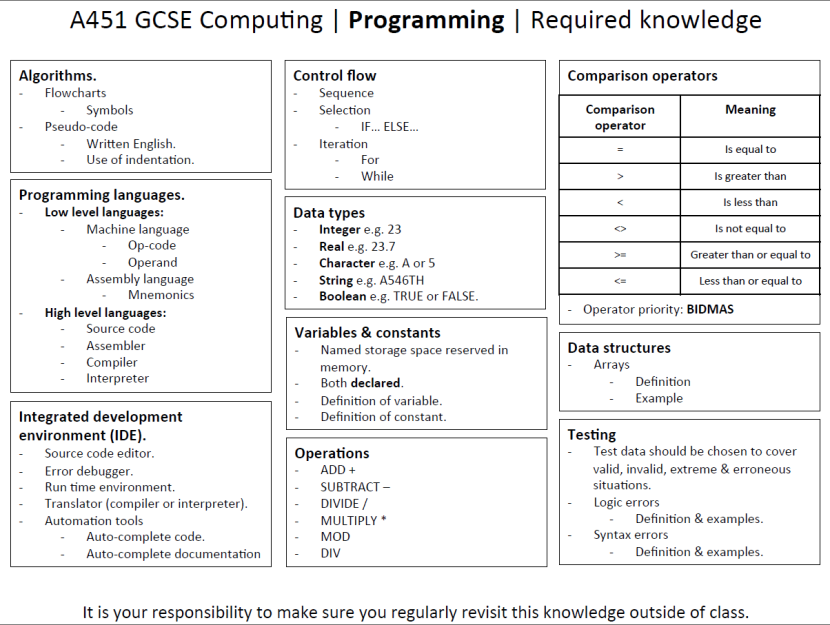


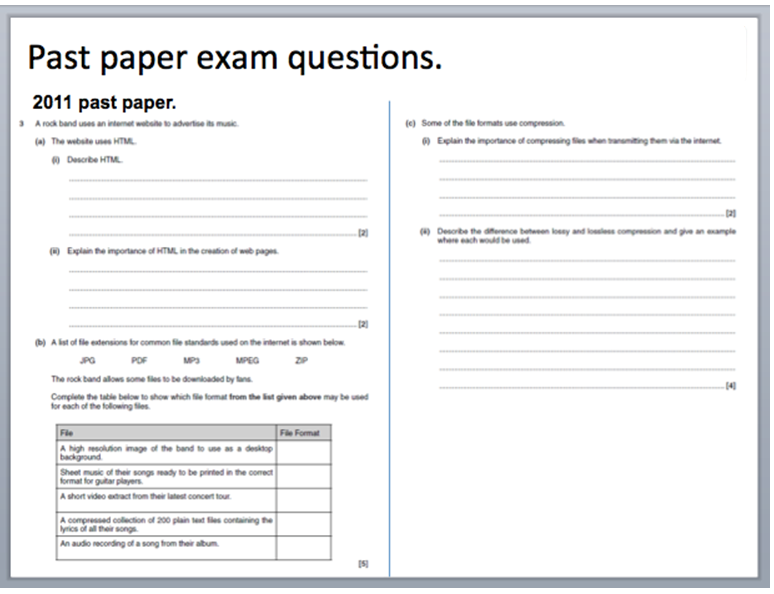
Reblogged this on The Echo Chamber.
Reblogged this on MrColley.com and commented:
A great post based on sound practice.
Great post. Reblogged on mrcolley.com.
Thanks,
Andy
Hi
I was wondering what platform you are using for your multiple choice quiz?
Thanks
James
Hi James – currently using Edmodo although I know some people that use Show My Homework equally well.
Thanks for a great set of resources / info – very helpful as I make the transition into CS in Sept
Cheers
Lee
Can the students use the knowledge organiser during the test?
I think they should be able to. http://wp.me/p7GGfg-ex